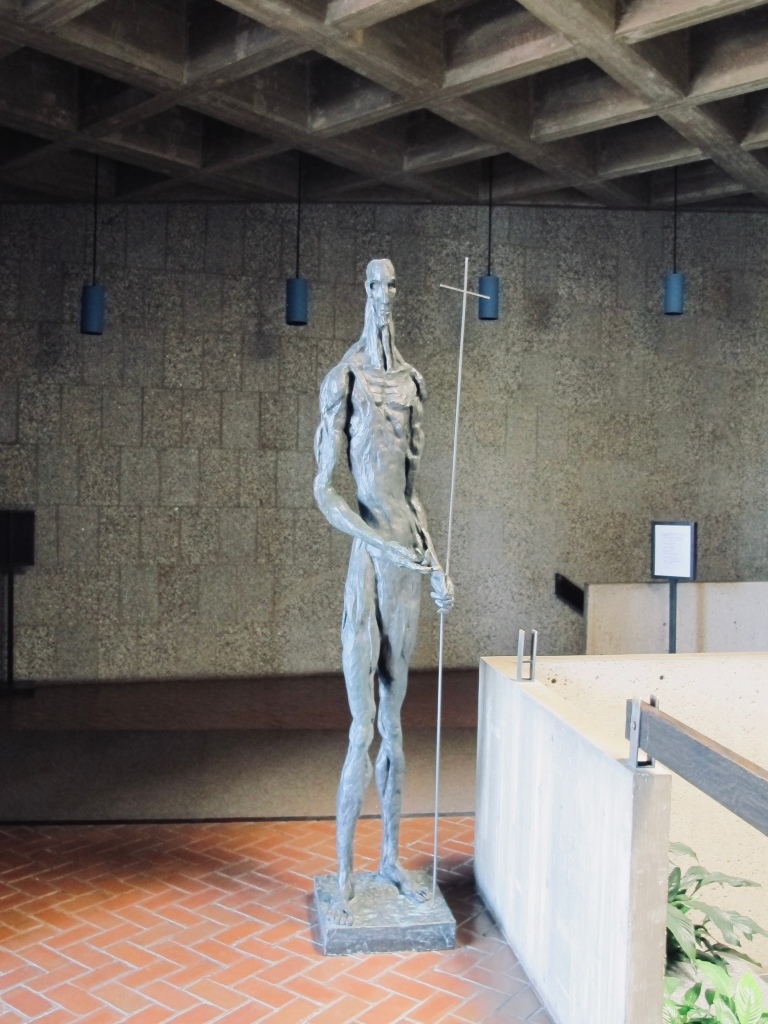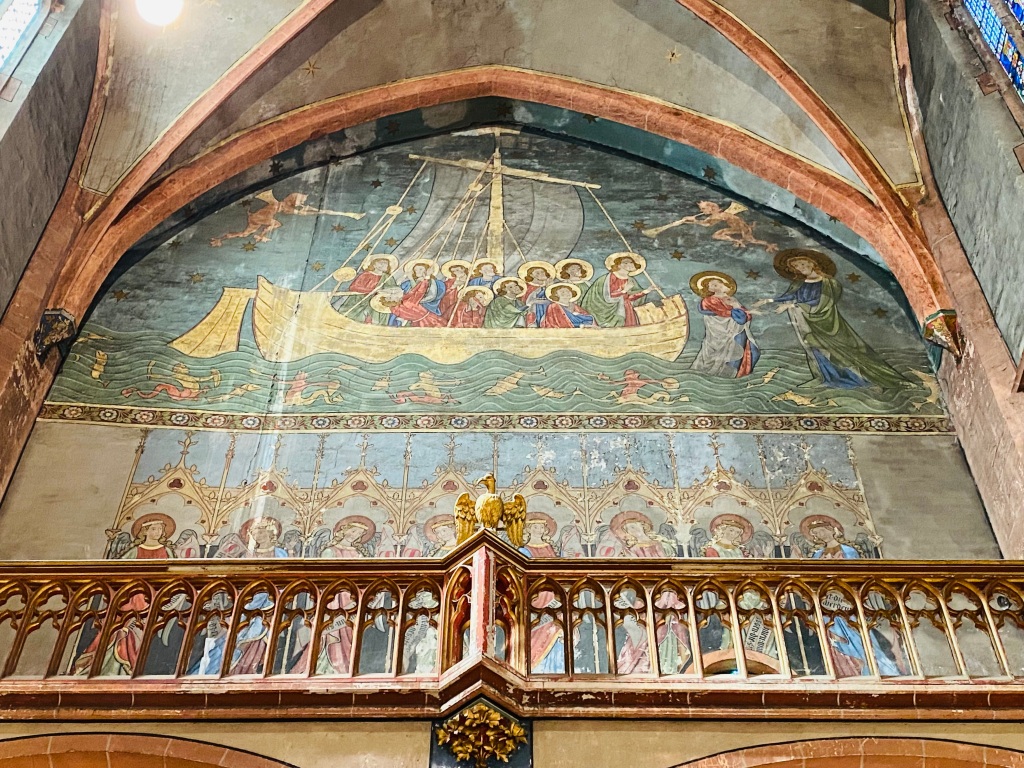Lest We Forget
Those following the recent Mass texts from the Books of Kings may wonder why we bother. They are hardly edifying, and in fact they border on the tawdry. For example, in two recent passages a queen’s son dies, leaving no heir of his own. So what does she do? She has all of her relatives killed off, in hopes she can hang on to power. But the high priest squirrels away one young survivor and hides him in the temple, where he’s forgotten by most everyone.
After a few years, however, the high priest produces the young man, crowns him king, and has the queen stoned. And the young king shows his gratitude by stoning the son of the high priest who had saved his life and made him king. Lovely. Are there any decent people here?
This is a tale of “from bad to worse”, and why in the world would anyone want to have those as readings in church? What inspirational value could they possibly serve? Well, there is value, and it’s this. This is a story of people who have lost their way, and their lives have disintegrated. They have abandoned the covenant they had made with the Lord, and they have lost any sense of meaning or nobility. There but for the grace of God go we, lest we forget.
This is a sampling of what’s in the Books of Kings, and it helps us appreciate why Saint Benedict advised his monks not to read from those books at evening prayer. So many of these stories are deeply disturbing, and they raise fundamental questions about our faith in God. Why does an almighty God permit such things to happen? Why do so many good people suffer? Why do the wicked prosper?
Readers of the Bible have anguished over these questions for centuries, and many have turned to the books of Wisdom for a bit of enlightenment. For one thing, the Wisdom literature is not about dynastic struggles, wars or issues of foreign affairs. Instead it has a focus on the internal challenges we all face when we choose to walk in the ways of the Lord. Those struggles can be deeply personal. They demand that we be thoughtful as we read the Word of God and what it might mean to us. They require that we let love be the driving force in our lives, and joy in the Lord is the reward.
Lest we think that this is a life of drudgery, I would submit that it is quite the opposite. And that is so because the message of Wisdom is that the Books of Kings are not the end of the story. Rather, it is the Holy Spirit — Wisdom itself — who gradually reveals the true end to the story. We need not revert to social barbarism, because the culmination of our story is the death and resurrection of Jesus Christ. “Christ has died; Christ is risen; Christ will come again.” Unlike the Books of Kings, this is a lesson that we can ponder anytime, day or night.
NOTES
+On 17 June I hosted a member of the Federal Association of the Order of Malta for a five-day retreat, in preparation for his Promise of Obedience next year. Much to our surprise, at Mass one day we turned to give the greeting of peace to a Malta chaplain from Phoenix, who is a member of the Western Association.
+On 22 June I presided at the Abbey Mass, and today’s post is a variation of the sermon that I delivered that day. Our guests at the Mass were members of the Youth in Theology and Ministry Summer Institute at Saint John’s. This is a summer program that welcomes groups of some twenty high school students who have an academic and personal interest in theology.
+On 21-22 June Saint John’s University and the College of Saint Benedict hosted annual summer reunions. For me it was an opportunity to connect with a number of friends among the alumni, and in particular I enjoyed the luncheon for members of the class of 1964.
+On 23 June we welcomed Jonathan and Carlos as candidates into the monastery. Abbot Douglas blessed them at morning prayer, and now they begin a two-and-a-half month period in preparation for clothing as novices.
+June 24th is the feast of the Birth of Saint John the Baptist, the patron of Saint John’s Abbey. At top is a stained glass portrait of John, which is in the Great Hall. Below that is a sculpture of Saint John by Doris Cesar, and it stands in the baptistry of the abbey church. Below that are two photos from the church of Saint Pierre-le-Jeune in Strassbourg. The first depicts the disciples, who reach out to Jesus as they are tossed in a boat, which corresponds to the gospel for 23 June. At bottom is the church in which it presides. The fresco points to the problem of division in the church, since the nave is Protestant and the apse is Catholic. But it offers hope.



